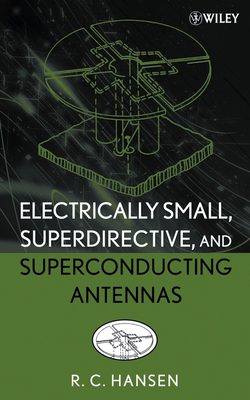Описание книги
A seminal reference to electrically small antennas for today's wireless and Wi-Fi world This book is dedicated to the challenges posed by electrically small antennas and their solutions. Electrically small antennas have characteristics that limit performance: low radiation resistance, high reactance, low efficiency, narrow bandwidth, and increased loss in the matching network. Most of these limitations are shared by two other classes of antennas: superdirective and superconducting antennas. All three classes of antennas are thoroughly treated in three interrelated parts: * Part One, Electrically Small Antennas, begins with a discussion of the fundamental limitations of bandwidth and matching, then provides detailed design information on loaded whips and dipoles, ferrite loops, patches with unusual substrates, and dielectric resonator antennas. In addition to exploring designs that work, the author sets forth antenna designs that are based on good physics yet are poor performers, as well as designs with both poor underlying physics and poor performance. * Part Two, Superdirective Antennas, sets forth basic capabilities and limitations of superdirective antennas, both apertures and arrays, and investigates bandwidth, efficiency, and tolerances. The author explores the magnification of intrinsic matching circuit loss due to a large mismatch and evaluates the recent and promising non-Foster matching circuits. * Part Three, Superconducting Antennas, reviews superconductivity concepts and new principles for dipole, loop, and patch antennas. The author concludes with a discussion of superconducting delay lines for wideband phased array steering. Throughout the book, the author provides readers with a historical perspective, setting forth what has been investigated, what works, and what does not. Each part has its own author index and a list of references to help readers continue their explorations of particular topics.With the explosive demand for wireless and Wi-Fi, this seminal reference is essential reading for all antenna professionals and is recommended as a graduate-level course book.
